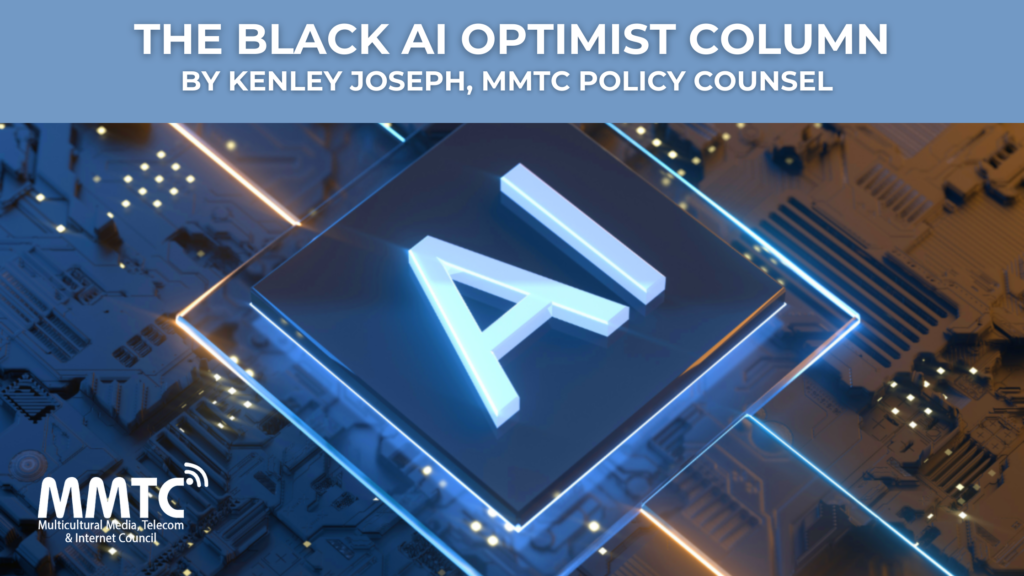
Read the previous columns below.
1) September 2023 Column: Introduction to Artificial Intelligence (AI)
2) December 2023 Column: Workforce Impacts
3) March 2024 Column: Regulating the AI Revolution
4) September 2024 Column: The Role of Civil Rights Groups and Minority Serving Entities
March 2025 Column
The Black AI Optimist Column Part V: Practical Tools for Advancing Multicultural Communities
As artificial intelligence (AI) continues its rapid evolution, the democratization of these technologies presents a crucial opportunity for multicultural communities. While concerns about AI’s potential harms deserve serious consideration, accessible AI tools offer practical benefits for overcoming barriers, preserving cultural heritage, and advancing professional goals—often without significant financial investment.
The most powerful shift today is how technologies once restricted to corporate giants and elite institutions are now accessible on our smartphones, tablets, and personal computers. This accessibility creates unprecedented opportunities for communities that have traditionally been technology consumers rather than creators and decision-makers. As important as it is to ensure that members of multicultural communities with access are engaged in AI development and implementation, equally crucial is broadening these tools’ benefits to the widest possible segments of these communities.
There are numerous AI tools available today with several impressive capabilities; and everyday companies are looking to innovate and introduce new tools. DeepSeek, for instance, was released in January of this year and has some impressive capabilities that are worth exploring. An understanding of AI tools and their capabilities and limitations will empower communities to understand how best to leverage AI at large. Below are four powerful AI tools with practical applications for multicultural communities. These are by no means the only AI tools that folks should be considering, but they are a great starting point for experimenting and getting familiar with their capabilities.
ChatGPT (OpenAI) transforms how we communicate and learn through natural conversation.
-
Students in underserved schools can access personalized explanations of complex topics tailored to their cultural contexts and learning preferences.
-
Job seekers can practice interview skills with customized feedback, helping them navigate workplace cultural norms while preserving their authentic voices.
-
Community organizers can efficiently draft newsletters, grant applications, and event descriptions, saving valuable time for direct community engagement.
READ MORE HERE